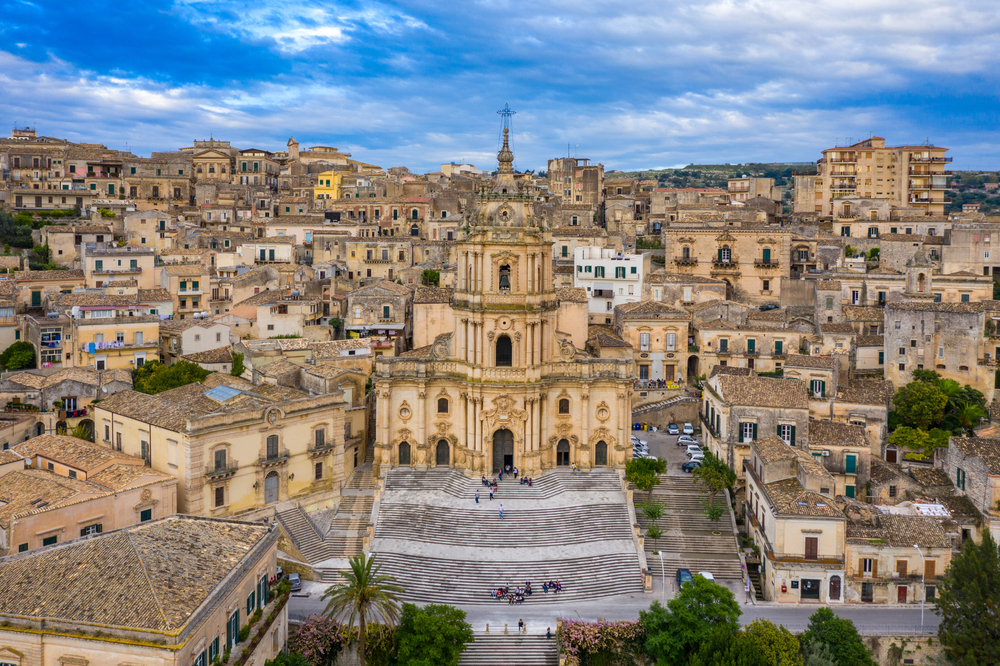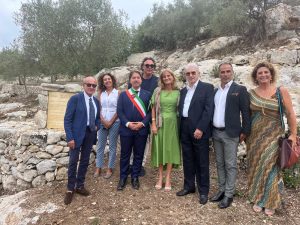SICILY – Noto and Modica: plaques in remembrance of two forgotten massacres

It has been 550 years since the massacres of Jews in Modica and Noto, Sicily, where 400 people were killed on August 15, 1474. Long forgotten, this tragic event is now commemorated by a plaque and a memorial stone. The plaque was unveiled on Sunday, September 22, by a delegation from the Union of the Italian Jewish Communities (UCEI) along with local institutions. “The UCEI is grateful to Mayor Corrado Figura (Noto) and Mayor Maria Monestieri Caschetto (Modica) for their commitment and dedication,” said UCEI President Noemi Di Segni during the ceremonies, which were accompanied by a day of studies focused on the massacre and the Jewish presence in Sicily. “We do not take for granted that our invitation to embark on this path of memory, which is so closely connected to current events, has been accepted,” Di Segni added.
 The massacre in Noto and Modica occurred in a growing climate of hostility toward Jews in Catholic Europe at the end of the 15th century, as discussed at the conference moderated by UCEI Vice President Giulio Disegni and promoted by the Catania section of the Jewish Community of Naples. Local preachers, particularly Franciscans and Dominican monks, played a key role inciting violence in Sicily, historians explained. Beyond religious motives, economic and political factors also fueled the massacre, which was meticulously organized by arming hundreds of people, including those recruited from nearby cities. “Today, we give voice and recognition to those massacres, recovering part of what was lost over the centuries with the expulsion of Jews from the socio-economic and cultural fabric of Southern Italy,” Di Segni said, recalling that the massacre was followed by the expulsion of the Jewish community from Southern Italy, ordered by the Spanish monarchy in 1492, which ruled the region at the time.
The massacre in Noto and Modica occurred in a growing climate of hostility toward Jews in Catholic Europe at the end of the 15th century, as discussed at the conference moderated by UCEI Vice President Giulio Disegni and promoted by the Catania section of the Jewish Community of Naples. Local preachers, particularly Franciscans and Dominican monks, played a key role inciting violence in Sicily, historians explained. Beyond religious motives, economic and political factors also fueled the massacre, which was meticulously organized by arming hundreds of people, including those recruited from nearby cities. “Today, we give voice and recognition to those massacres, recovering part of what was lost over the centuries with the expulsion of Jews from the socio-economic and cultural fabric of Southern Italy,” Di Segni said, recalling that the massacre was followed by the expulsion of the Jewish community from Southern Italy, ordered by the Spanish monarchy in 1492, which ruled the region at the time.
This expulsion, as the conference participants in Noto and Modica explained, impoverished Southern Italy, and devastated a significant part of its social fabric.
What happened half a century ago serves as a lesson for today. “The Jewish presence and its contribution to development, then and now, represent the challenge of coexistence,” Di Segni remarked. “Coexistence requires knowledge and cultural sharing. Memory is both a responsibility and a commitment to act with consistency in the present. To those who continue to legitimize hatred and terrorism with dogmatic assertions, we remind once again that the abuse of religion and state power – then by the Church, and today by Palestinian leadership and other theocracies – is the evil that generates destruction.”
Delivering a message from the Bishop of Noto Salvatore Rumeo, Father Giuseppe Stella emphasized that today “the commitment of everyone, including the Catholic Church, is to reject antisemitism, encouraging while encouraging dialogue, fraternal collaboration, and remembrance.”
